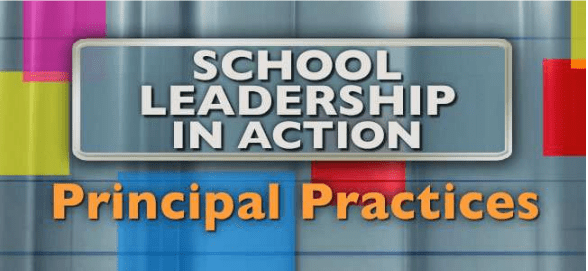Effective Principal Practices

NAESP is committed to providing the research and best practices to promote leadership skills in all principals and school leaders. Through our programs, communications, publications, resources and partnerships we have the cutting edge and most current information available. In an age of heightened accountability, it is critically important to remember that creating and sustaining good schools is about more than academic performance. That’s why we remain focused on the issue of how principals lead and work in learning communities. Through our initiatives we draw connections across sectors, demographics, and change theory to provide for you a solid framework for school growth and student achievement.
As a Communications Partner with The Wallace Foundation, our focus has been on the practice of the work of a school leader. Through the Wallace Professional Learning Communities, professionals come together to explore and discuss how to strengthen educational leadership. Publications as a result of this work can be accessed through The Wallace Foundation website at www.wallacefoundation.org
Prince George’s County Public Schools, MD, has been involved in the NAESP Mentor Program for many years and in The Wallace Foundation’s Principal Pipeline Initiative. Two of the PGCPS principals, Kim Washington and Niki Brown—NAESP Nationally Certified Mentors—share their leadership ideas and practices in the latest Wallace Foundation project: School Leadership in Action: Principal Practices. In this series of videos, exemplary principals in varied school settings nationwide bring to life and reinforce the five key practices of effective principals:
- Shaping a Vision of Academic Success for All Students
- Creating a Climate Hospitable to Education
- Cultivating Leadership in Others
- Improving Instruction
- Managing People, Data and Processes to Foster School Improvement
These illustrative, free professional development tools are part of a growing repository for principals and those who support their professional development. They can be used with accompanying support materials or integrated into existing school leadership programs/curriculum. They are appropriate for both formal and informal learning settings and for directed and self-directed learning.




